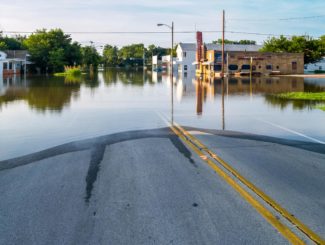January 24, 2023
A major chemical plant fire occurred at the Carus Chemical Company plant in LaSalle, IL during the morning of Wednesday, January 11. This facility is a leading producer of chemicals that are commonly used for water and wastewater treatment including potassium permanganate, sodium permanganate, and phosphate-based corrosion control chemicals (see EPA link for additional information).
Chemical Plant Fire and Potential Impact on Supply Chain Disruptions | US EPA
What does this mean?
This event will affect the global supply chain for these chemicals and may impact water utilities across the United States. Sodium and potassium permanganate are commonly used in municipal water treatment to address manganese in the groundwater through conventional gravity and pressure filtration methods. The Minnesota Department of Health (MDH) has implemented the following health advisory limits for consuming manganese: 100 parts per billion (ppb) for infants and 300 ppb for adults and children. Studies have indicated that consuming manganese above these levels for a lifetime can affect memory, concentration, and motor skills.
What are the alternatives?
A very cost effective and natural method for treating manganese, iron, and ammonia in drinking water without the use of sodium permanganate, potassium permanganate, and chlorine is a process called biological filtration. This process uses microorganisms, rather than chemicals, to remove compounds biologically and has been commonly used in the wastewater industry since the early 1900’s.
In the last 20 to 30 years this treatment method has gained popularity in the United States. Minnesota water suppliers are showing an increasing interest in this water treatment method in order to combat rising costs of chemicals, address an increased desire for green technology and to meet federal regulations that limit the formation of disinfection by-products (DBP’s).
Most Minnesota groundwaters already have the balanced nutrient conditions necessary to grow microorganisms that remove compounds biologically. Therefore, modifications of existing conventional filtration plants to operate biologically are often straightforward and very cost-effective.
The ultimate benefit of implementing biological filtration for water treatment is the reduction or elimination of treatment chemicals, which results in significant operational savings over time.
Where to start?
A biological filtration pilot study is the first step required by MDH to verify its effectiveness to treat contaminants in a community’s water source. These studies typically require 3 to 4 months to complete before an engineering report is submitted to MDH for review and approval.
WSB has completed successful biological filtration studies for the cities of St. Martin, Baxter, Worthington, Hastings, Plymouth, and Andover using our own biological filtration pilot plant and trailer. This set up allows us to perform the necessary pilot study without disrupting the existing infrastructure and to identify the ideal treatment solution based on the area’s water conditions. If it is determined that biological filtration is a good alternative, the Minnesota Public Facilities Authority (PFA) can provide funding to implement treatment of emerging contaminants such as manganese in drinking water through the Drinking Water Revolving Loan Fund. WSB has worked with many clients to secure this funding.
Learn more about how WSB’s water treatment pilot study program works.

